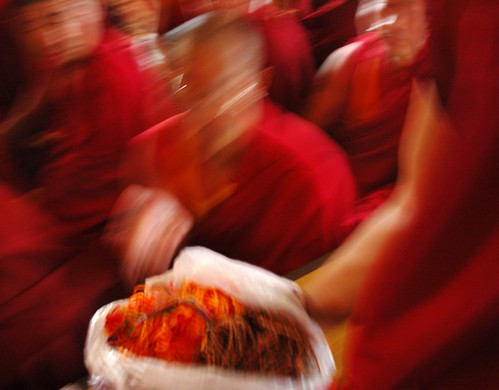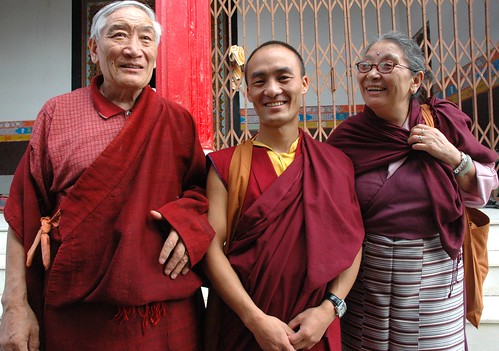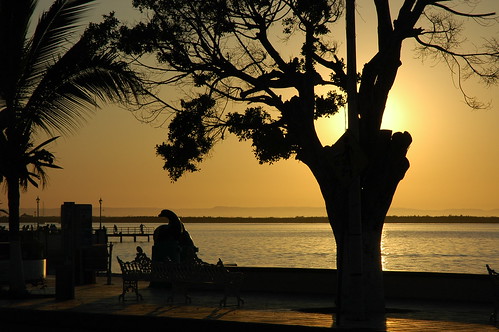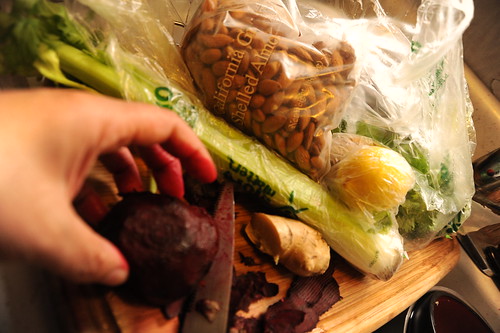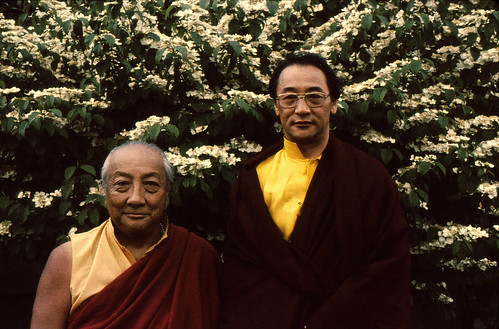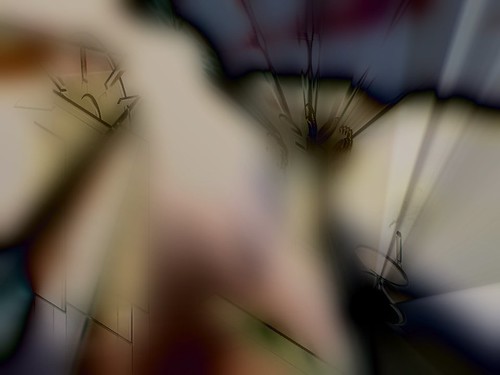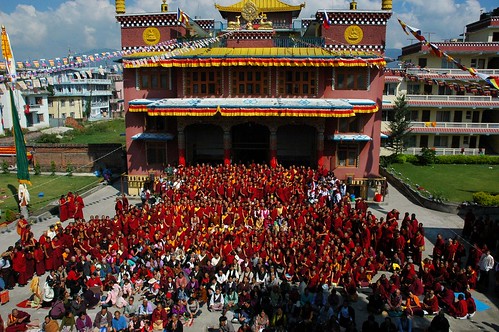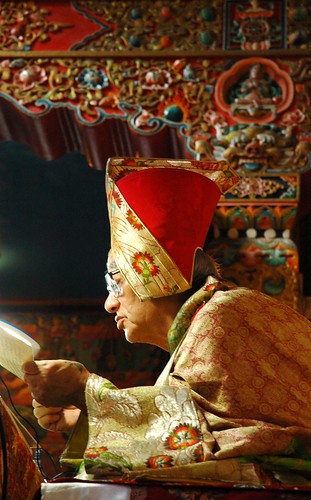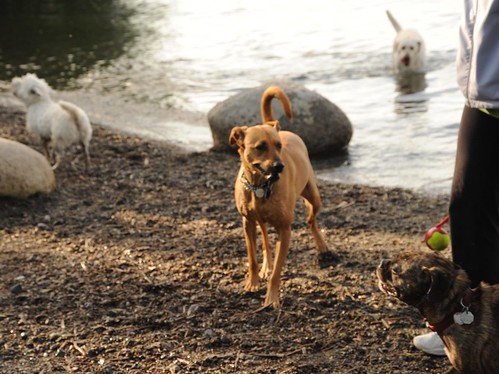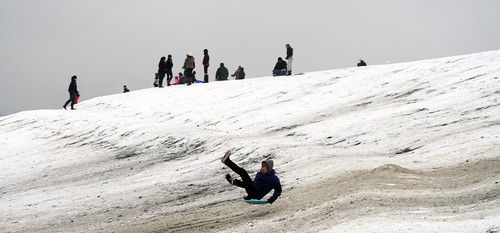Sunday, April 28, 2013
Thursday, April 25, 2013
Wednesday, April 24, 2013
Tuesday, April 23, 2013
Monday, April 22, 2013
Sunday, April 21, 2013
Paint bottles, squeeze type, mirror blanks, painted mirror frame, red, jewelry display, Arcelia Barbero Gomez's studio, Zona Centro, Guadalajara, Jalisco, Mexico

Paint bottles, squeeze type, mirror blanks, painted mirror frame, red, jewelry display, Arcelia Barbero Gomez's studio, Zona Centro, Guadalajara, Jalisco, Mexico, a photo by Wonderlane on Flickr.
artworks by Arcelia Barbero Gomez, www.karpastado.blogspot.com/
Arcelia Barbero Gomez wearing a t-shirt of paint, saying fairwell to Ariel at the old wood door, Mexique, Zona Centro, Guadalajara, Jalisco, Mexico
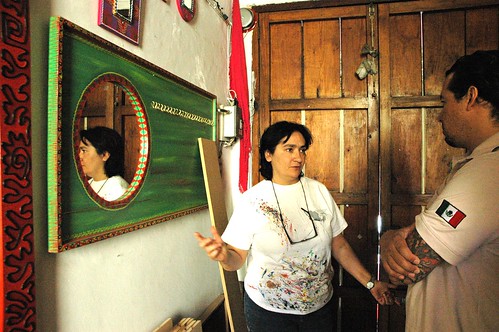
Arcelia Barbero Gomez wearing a t-shirt of paint, saying fairwell to Ariel at the old wood door, Mexique, Zona Centro, Guadalajara, Jalisco, Mexico, a photo by Wonderlane on Flickr.
http://www.karpastado.blogspot.com/
Saturday, April 20, 2013
Friday, April 19, 2013
Sur offering, partial ingredients list, neighbor's offering, white foods, flour, sugar, raisins, oats, barley, barley, coconut, cookies, carmels, chocolate chips, Tibetan salt, sage, containers, Tibetan Buddhist ritual offering, Seattle, Washington, USA

Sur offering, partial ingredients list, neighbor's offering, white foods, flour, sugar, raisins, oats, barley, barley, coconut, cookies, carmels, chocolate chips, Tibetan salt, sage, containers, Tibetan Buddhist ritual offering, Seattle, Washington, USA, a photo by Wonderlane on Flickr.
www.lamayeshe.com/?sect=article&id=693
Offering Aroma
The Tibetan word “sur” (Tib. gsur) refers to the smell of roasted flour that is offered to spirits. The best times for practicing sur are in the evening or at night. You do this practice during a break from sitting meditation—not a break time from Dharma practice but a break time from sitting meditation. The text says “night time”; I think that evening or night time are best because these are the times when spirits wander. This is also the time when dakinis gather. It’s easier for the intermediate state beings to get what you offer at those times. If you cannot do it at those times, then other times are acceptable, but those are best. 1
The container used for sur practice should be clean and unbroken. The fire shouldn’t have much smoke. If you make fire with firewood, then usually there’s smoke.2 If there’s a lot of smoke, then you don’t smell the food because the smoke overwhelms the scent of the food. The food scent gets mixed in the smoke, the smoke’s stronger, and so they might not receive the food.
So, reduce the smoke as much as possible. Let it burn as much as possible until there’s either no smoke at all or very little smoke. The less smoke the better so that the spirits can smell the food. When they smell the food and when you chant the mantra they get something. When the coals are red inside with some white flecks outside, that’s good. So then put food on top of the burning coals.
It’s excellent if you can do this practice every day. If you do it occasionally, then that is OK also. However, if you do it consistently and then stop it’s not so good because the hungry ghosts get into the habit of being fed every day and then they come and there’s no food.
Also, when making offerings to hungry ghosts, it’s good to cover your eyes. We traditionally wear a hat with black threads or strands hanging down to cover our eyes when offering to hungry ghosts.3 When hungry ghosts see a human body and human face, it appears so powerful and magnificent that they get scared, just as we would get scared if we saw a lion in the jungle. So, we wear these things when making charity to them so that they won’t get scared away.
The Materials to be Offered
When doing sur practice, you must have actual food to burn on the coals to offer it. Otherwise, it would be like trying to have lunch with no food. For the actual substance to be burned, it’s best to use the same twenty-five ingredients that are used for making tormas. These are the five types of grain, five types of medicines, five types of scented substances, five types of essence, and five types of jewels.
If you cannot get those ingredients, then the minimum would be to use just roasted flour mixed with butter. Tsampa—roasted barley flour—mixed with men-chey powder is what’s traditionally used. However, you can use different kinds of roasted flour—barley, wheat, or corn—mixed with lots of butter. The butter shouldn’t be wet. Don’t melt it—fold in lots of hard butter. .4
So, the minimal ingredients would be just roasted flour and butter. If you can get men-chey powder, then it’s good include that as well. Then, if you can it’s also good to include the three white substances (butter, milk and curd) and the three sweet substances (sugar, honey, and brown sugar or molasses).
If you can do so, the best thing is to include all twenty-five ingredients. The Kriya Tantra Vase Pill traditionally has these twenty-five ingredients. If you have the pill that goes in the vase for Kriya Tantra or for Highest Yoga Tantra then it’s very good to mix those in with your sur ingredients. You can usually get those from the Tibetan monasteries or from the Tibetan Medical Institute in Dharamsala. There’s also a precious pill called Moon Crystal which can be obtained from a Tibetan doctor or from the Medical Institute as well which traditionally has these twenty-five ingredients. If you have any of these pills, then you crush one and mix that little bit with a large container of roasted flour.
It’s also very good if individuals or Dharma centers can gather together the twenty-five ingredients and mix them with the roasted flour. Using these ingredients is a very powerful method for success.
Another important point related to the materials used is that you should not say anything bad about the substances you are offering to the spirits. His Holiness Song Rinpoche explained that if you say anything bad about the materials while you are preparing them—either before or during the ritual—then the spirits or pretas [hungry ghosts] who are close by waiting around to receive offerings or who have some kind of clairvoyance will actually see the offerings in that way. Rinpoche told stories about this—how people said bad things about the offerings and then they actually appeared like that to the spirits. So, instead say how beautiful or wonderful the materials are and then also recite the words of the ritual and do the visualizations.
Returning to the twenty-five ingredients, they are as follows:
Five scented substances:
1. Red and white sandalwood (offered to Lord Buddha by the goddesses Tsedog and Kyongma, respectively)
2. Akaru (wood incense)5
3. Camphor – offered to Lord Buddha by the goddess Ochajuma
4. Saffron – offered Lord Buddha by the Princess of Scents
5. Nutmeg (zadi) – offered to Lord Buddha by a cannibal
Five medicines:
1. Kandakari
2. Leti
3. Shu Thag (white)
4. Claw of water lion6
5. Wänlog (this is a root of a plant, shaped like a hand having five fingers)
These medicines, Lord Buddha blessed.
Five types of grains:
1. Wheat
2. Barley
3. Rice
4. Beans
5. Sesame seeds
Five jewels:
1. Gold
2. Silver
3. Pearl
4. Coral7
5. Lapis lazuli (mumen)
These five jewels were offered to Lord Buddha by Arya Nagarjuna.
Five essences:8
1. Gold – essence of earth: offered by Bhaham Namyang
2. Lentsa (Tibetan salt) essence of water: offered by the King of the Nagas
3. Honey – essence of flower: offered by the leader of humans, Khagon
4. Butter – essence of milk: offered by the farmer girl, Lagkyinga
5. Brown sugar – essence of fruit: offered by Hananmum
Benefits of these Substances
Kunkyen Jamyang Shepa, who was an extremely famous, learned, highly attained teacher, wrote about the benefits of these substances for vases and tormas in the root text Kiria Pungzang as follows:
• Place the five medicines inside to eliminate the eons of sickness.
• Place the five scents inside to have pure morality.
• Place the five jewels inside to fulfill all needs and to eliminate the eons of harm from weapons.
• Place the five essences inside to become the heart of all and to fulfill all wishes.
Kunkyen Jamyang Shepa also explained:
• The benefits of the five medicines are to not have disease and to have happiness.
• The benefits of the five scents are to achieve pure morality and to not fall to the bad realms of transmigrators.
• The benefits of the five jewels are to receive all needs according to what one desires/wishes, to pacify war, and to not be harmed by weapons.
• The benefits of the five grains are to increase enjoyments and pacify famines.
• The benefits of the five essences are to help increase all the essences of samsara and nirvana and to fulfill all needs.
HH Dilgo Khyentse Rinpoche and HH Dagchen Sakya, Seattle, Washington, USA 1976
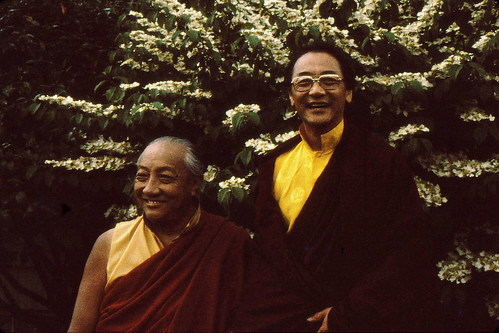
HH Dilgo Khyentse Rinpoche and HH Dagchen Sakya, Seattle, Washington, USA 1976, a photo by Wonderlane on Flickr.
One of the most famous lamas in the world His Holiness Dilgo Khentse Rinpoche with his beloved student, the lama His Holiness Jigdal Dagchen Rinpoche, smiling and laughing in the yard of his palace in Seattle, Washington, USA circa 1976. I wonder who told the joke?
https://www.facebook.com/chris.wilkinson.7927?
Wednesday, April 17, 2013
Sunday, April 14, 2013
Saturday, April 13, 2013
Zephr shows off a Buddha in the window of a cloisonne art gallery of religious images. Cloisonne Buddha Statue in Buddhist Art Gallery, Kathmandu, Nepal
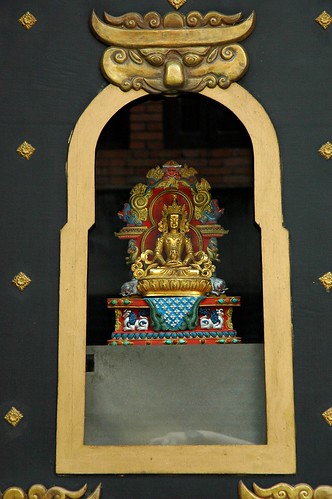
Zephr shows off a Buddha in the window of a cloisonne art gallery of religious images. Cloisonne Buddha Statue in Buddhist Art Gallery, Kathmandu, Nepal, a photo by Wonderlane on Flickr.
Invoking the Tathagata’s Compassion
Om Svasti Siddham.
Homage to the Omniscient One.
Tathagata, Lord of the Three Realms, consider me for a moment!
Omniscient King,
The thorns of what I see are poking at my mind’s eyes.
I can’t see you.
In your heart you dwell upon the holy.
This is why you don’t see me in my destitution.
The emissaries of Mara grab at me every day.
I think back on my country
And get carried away in my attachments.
I am looking for a chance.
Kye Ma! Blessed One!
I have no freedom.
Your compassion turns out to be nothing but words.
If you actually used your compassion for the lowly
I would be released.
If your compassion was meant for me
I am out of luck.
Whom do you bestow your compassion on?
While you’re waiting for the right time to be compassionate
I’m falling into a horrible life right now.
Only when I cook in hell
Will my emotional problems
Be worse than they are right now.
Why is it that we who are messed up with emotional problems
Are so unfortunate?
While you are waiting for the right moment
Your compassion shrivels.
Maybe that’s not what’s happening,
But while I am waiting for you to protect me some day
It would be easy to give up right now.
So if you want me to live
You should concern yourself with me this very day.
I have problems.
Show me how you would deal with them.
Maybe I am making all this up in my mind;
I am not putting things together so they add up.
But maybe I have in fact put things together correctly.
Do something to make this work out!
If things don’t work out this time
I hope that [at least] it won’t be like it has been in the past.
If you don’t care about me,
Does it really matter whether things work out?
You might care.
But maybe you don’t know what’s going on.
Why are you called Omniscient?
If I use my poverty as a reason to hate you
I will instantly move on into a horrible life.
If you have compassion for the lowly
Use it to take me by the hand.
If you would just show me your ways and methods
What else would I spend my attention on?
But if I just don’t understand what you have taught
Kye Hud! Am I not a belly crawler?
Sometimes my mind is like an animal’s.
That’s when it’s appropriate to use some extra compassion.
That’s how it is.
But if you don’t care about me
Where can I go for shelter?
It would definitely be a waste
To seek shelter from anyone else.
So if there is no refuge other than you
Kye Ma! Why don’t you care about me?
Maybe you are forgetting the time:
Doing things in the present with equanimity,
Leaving your love for the future.
Maybe that’s not what you are doing.
You liberated Ajatashatru
When you cared about him in your heart.
You knew how to liberate Viradhana.
E Ma’o! Is there anything you don’t know how to do?
You can be compassionate to the likes of them
So what have I done wrong?
I used to be caught up in evil karma,
But please consider how hard I work to make the Sages happy.
That’s what I do,
When I collapse, however,
You dump additional crap on me.
I will continue to do this,
But I hope that you notice I am doing it.
I have thought about it, and looked everywhere,
But there is no teacher that I can talk to about this.
I pass my days and nights thinking about it,
Then I regret wasting the time.
I lose my sanity anyway.
Kye Kye! Why don’t you pay attention to me?
When I look at you as someone that exists
I get a better perspective on things that are subject to destruction.
When I look at you as a void Victorious One
I just criticize you.
If I cling to the idea that you both exist and don’t exist
I get delusional.
If I cling to a rejection [of both your existence and non-existence]
You become a Victorious One I can’t comprehend.
O Sage,
When I develop on these skewed ways of seeing things
It does nothing to make you change.
Is your heart balanced in such a way
That there is merit in pondering you
No matter what I decide?
It’s true that you taught me wisdom
Even when I was doing bad things.
You are still here,
And I have nothing else to pass the time on.
I calmly try to find your head,
But in my poverty I can’t even find your instructions.
If you were good in your previous lives
Why don’t you continue to be like that?
They say you are skilled in methods,
So are you purposefully distorting your methods?
Maybe your means and methods really work.
If so, Sage, are you forgetting something?
If I am making mistakes
Why don’t you stop me?
If it’s alright to do things at certain times
When is it not alright to do them?
If you, Sage, are concerned about my karma
Kyi Hud! Why do I have no freedom?
I am constantly spinning around in samsara,
So why don’t you act on your compassion?
I respectfully bow to the one who looks after living beings
In Samsara.
My first refuge is in the one who provides shelter
For those who have no shelter.
You are a teacher who has a vision
Of everything that can be known.
You don’t even have minor problems.
I carry a volume of your scriptures on top of my head.
Do you regret the promises you have made?
Have they vanished?
Keep your promise.
Have compassion on me.
You can take hundreds into your heart,
So think about saving me from this horrible life.
It may be that I am mistaken
And that you have already [saved me].
Great Compassionate One,
Be patient with me.
If I don’t put this down for you
Who will I ever talk to about it?
This is how the destitute scream out their curses.
Kye! See what emerges from their mouths.
If they have made it into your heart
I will be joining them from now on.
Kyi Hud! Thinking about myself realistically:
My future is to be cooked in the flames of sorrow.
I want to ask you for your kindness,
But I don’t know what that is.
If you can really see how it is for me
You know that I am in the dark right now.
If you ponder over and over how this feels
Your eyes will overflow with tears of compassion.
That’s how it is.
I’m falling down at your feet.
Don’t forget to have compassion for us all!
You have immediate knowledge of my sorrow.
Your love overflows.
But how can I invoke it?
It’s difficult to be immersed in mental agony.
I’m a fool, asking you for help with my personal sorrows.
Others are miserable,
But I think only of my own misery.
I cannot see the depths or limits of samsara.
What kind of Lord are you if this doesn’t make you cry?
It’s difficult to divert the river of rebirth.
It runs through the ravine of selfish grasping.
My karma makes me experience hell.
Even so, I hope for no shelter other than you.
The one saying these things is Kunga Gyaltsen Pal.
Actually, I am Zangpo.
I sit here being ashamed,
For scholars who are greater than I am
Will now be thinking about the ways I have gone wrong.
May anyone who sees, hears, believes, recites, or shows others
These words
Quickly be immersed in the freedom of the Victorious Ones
And their children.
May living beings be granted the realization of the Sage’s prayers,
The strength of character to be pure,
And all that the Victorious Ones of the three times
Consider to be good.
This is the Invocation of the Tathagata’s Compassion. It is an exact copy of the manuscript in Sakya Pandita’s personal library.
WORDS OF THE SAKYA MASTERS
Translated from the Tibetan by Chris Wilkinson
Friday, April 12, 2013
Buddha Earth Witness Mudra, statue, gold over wood, San Francisco International Airport, California, USA
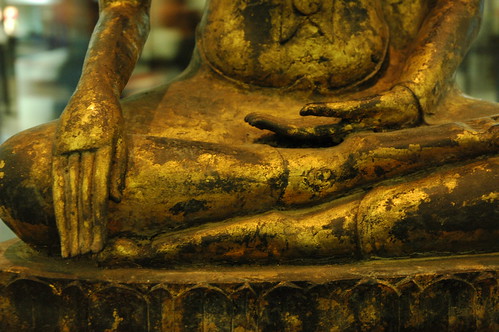
Buddha Earth Witness Mudra, statue, gold over wood, San Francisco International Airport, California, USA, a photo by Wonderlane on Flickr.
These are the final days of the genuine Dharma taught by the Buddha. The Buddha’s teachings will continue to exist in their natural condition for just over a thousand more years.
I have talked about the good teachings
Of our most loving teacher and the Arhats.
Other people, learned authors of explanatory works,
Land Lords, translators,
And people accustomed to good sayings
Have already,
As if they were the sun,
Shone forth these teachings without error.
Few people talk about the Sage’s words these days.
When they do talk about them
It’s only because they want attention.
Most people hate the teachings.
Some people get into [the teachings],
But they prefer to denigrate them.
They turn against what they have studied.
They turn the teachings,
Which are better than gold,
Into antiques.
These people are tortured by emotional illness,
But they don’t use medicine.
Kye Ma’o, the pain is really frightening.
Kye Ma’o, what a waste.
We reach out to give medicine,
But we can’t do it all.
We have to keep trying
To reveal the purpose of this life
For what it is.
Presently,
The gardens in central [India] are growing heretics.
A lot of the teachings in this snowy mountain range
Are mere similitudes of the Dharma.
The evil doing kings in these frontiers
Are destroying the libraries.
Kyi Hud! They are destroying the teachings.
I’m starting to get serious, right now.
I say these things, but very few listen to me.
In an effort to cut through my exacerbating this
In my own mind
I have quit with talking
So that I can just do this.
It might not turn out to help everyone,
But I want to contemplate the good teachings for myself.
If a few people hear what I say it will help them.
These are the final days of the teachings.
This is what I am doing in them.
By the merit there is in composing this
Admission at the Dharma’s Gate
May living beings enter it!
May they reach the peaks of the tenth level!
The layman Sonam Tsemo, whose intellect is difficult to fathom, wrote this work: Admission at Dharma’s Gate. It is well written. It is finished.
WORDS OF THE SAKYA MASTERS
Translation from the Tibetan by Chris Wilkinson
Buckets of Long life Rice, to feed the masses of people, ladles and spoons, served from blue checkered plastic, speckled floor, beginning of Sakya Lamdre, Tharlam Monastery of Tibetan Buddhism, Boudha, Kathmandu, Nepal
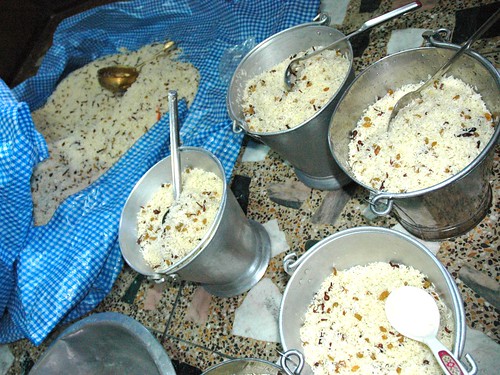
Buckets of Long life Rice, to feed the masses of people, ladles and spoons, served from blue checkered plastic, speckled floor, beginning of Sakya Lamdre, Tharlam Monastery of Tibetan Buddhism, Boudha, Kathmandu, Nepal, a photo by Wonderlane on Flickr.
Raw grains don’t work on their minds.
The mentally obsessed smash raw grains to pieces.
They climb on them and take off their husks.
They want it all to happen at once.
They dig in then they clean up.
They want it to last a long time.
They are grain pounders.
There is no river that doesn’t come down.
Tree bark has no roots.
This is great wisdom.
It gets you from one river bank to the other.
I pound on objects, and I work alone.
I am supported by the wind.
Things taste the same.
I work honestly.
Even when there is no rice or grain
I am always pounding grain.
Now the word for pounding grain is “D.em.gi.” So he was known as Sri D.em.gi. When everyone understood that he was a siddha the king and all the people did services for him and said: “When he’s done pounding raw grain he will D.om everyone in the village and will Ha in the end. All the wealthy people in Caritra said this as well. They joined with him and attained the siddhis to play in the sky.
WORDS OF THE SAKYA MASTERS
Translated from the Tibetan by Chris Wilkinson
Sur offering on the steps of the Boudha Stupa, as seen from the northeast view of the shrine and candle offering rooms, on a sunny day with puffy clouds, Boudha, Kathmandu, Nepal
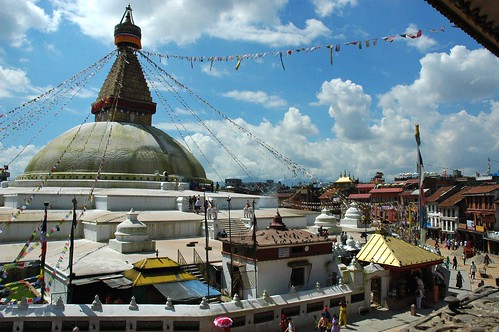
Sur offering on the steps of the Boudha Stupa, as seen from the northeast view of the shrine and candle offering rooms, on a sunny day with puffy clouds, Boudha, Kathmandu, Nepal, a photo by Wonderlane on Flickr.
When you wake up
You are sitting there by yourself.
You turn your thoughts up and down,
Full of wrath over this awful charnel ground of Samsara.
You start to wish for a home where you can be free.
Think about what you have to do to get that:
Knowledge, methods, and practice.
Consider this well:
Freedom begins by developing a knowledgeable perspective.
Your thoughts in days gone by were confused.
Different objects each have their wonders of great beauty.
Take a look at these wonders.
You will see the point
That there is no point.
You will have found the point you were truly aiming for.
When you look at an object you won’t recognize it.
It’s pointless.
What does it matter?
If you look at your body you won’t recognize it.
Remain calm when you can’t take form.
Physical appearance is like a reflection in a mirror.
It’s like an illusion.
What does it matter?
You’ll hear sounds,
But you won’t recognize them.
All the noises sound like echoes.
You figure out that nothing is making the noise.
Remain calm when the noise is empty.
Notice that holding, touching, and feeling begin and end with an object.
Perceptual experience is only a figment.
Remain calm when your awareness is empty.
You will find no reason to think the thoughts that are in your mind.
You will find no start or end to the things you think.
They have no center or edge.
They are like the sky.
Remain calm when you can’t be born.
There are no lands that are higher or lower.
There is no birth or ending.
There is no good or evil.
Remain calm in the equanimity of the Dharma.
Your thinking in yesterday’s thoughts was mistaken.
Nothing is born,
But you thought there was birth.
Nothing is sick or old,
But you thought there was.
Nothing ends,
But you thought there was an ending.
The Dharma does not begin with birth.
How could it stay or end?
You will get the idea that there is no birth or ending.
This conception will grow.
Watch it take its place and let it go.
Put down your fixations,
And let them go.
Settling on something is also a conception.
You don’t understood the way things are
When they are left to themselves.
You have not come to terms with the instructions
About not holding on.
You hold on to whatever you happen to be thinking about.
You even hold on to thoughts about not holding on.
Selflessness does not stop shining.
May you understand the interactivity of what is.
The meditation you practice has one point.
If you are diligent it is in your hands.
Don’t campaign for depression and madness.
They are your enemies.
Build your path out of Peaceful Abiding and Higher Perception.
The profound instructions for this practice
Are in the Tantric literature of the Secret Mantra.
Don’t sing the songs of the Secret Mantra.
Keep the Upadesha all in your mind.
Bodhisattvas who want to do this practice
Adorn themselves with the seven classes of Personal Freedom.
They are serious about the practice.
They do not use their body or speech frivolously.
They do not work against the Buddha’s teachings.
They do not abuse living beings.
They don’t throw us in the trash when things get bad.
The benefits are enormous, so they are serious.
This is the root;
Don’t be slack with it.
If you use this as a foundation
You will have three ways of practicing the Secret Mantra:
When things are complicated postpone them
On account of the difficulty of getting it together.
When things are not complicated
Or when they are totally uncomplicated
Get serious about watching what you’re doing.
If you use these words for your practice
The Buddha is in your hands.
It won’t be long till he sits
On the palm of your hand.
You’ll get results
Without a hassle.
WORDS OF THE SAKYA MASTERS
Translated from the Tibetan by Chris Wilkinson
Thursday, April 11, 2013
Our smiling hostess, Middle Way Cafe, Buddhist coffee house and restaurant, menus, t-shirt, Northern Lights Boulevard, Anchorage, Alaska, USA

Our smiling hostess, Middle Way Cafe, Buddhist coffee house and restaurant, menus, t-shirt, Northern Lights Boulevard, Anchorage, Alaska, USA, a photo by Wonderlane on Flickr.
May our guru care for all of us.
May people who know about
Our guru’s unbeatable Dharma methods
Write many biographies.
May worldly men make good their escape from the world,
Live happily,
And attain the bliss of enlightenment
A scholar’s job is to watch and listen,
Remember, believe, and work to fill minds.
May the Buddhas will quickly immerse us
In a vision of wisdom.
WORDS OF THE SAKYA MASTERS
Translated from the Tibetan by Chris Wilkinson
Wednesday, April 10, 2013
Contents of an old Tibetan Buddhist blessing bag, dorje, bell, statue of Maitreya, the Buddha of the future seated, blessing cord, bag, Garden for the Buddha, Seattle, Washington, USA

Contents of an old Tibetan Buddhist blessing bag, dorje, bell, statue of Maitreya, the Buddha of the future seated, blessing cord, bag, Garden for the Buddha, Seattle, Washington, USA, a photo by Wonderlane on Flickr.
[Sakya Pandita] was the finest of Geshes. He was adored by everyone. His illumination shined out in a hundred rays of light. No one could compare or compete with him. He was a Mahatma who had done exceptional works of merit in previous lifetimes. He lived with scholarly men. He studied every field of learning. He persevered on the path to omniscience, and could do almost anything. In this life he had a good mind and body. He was well endowed. He was praised and adored by everyone. He was attractive. All of his senses were clear and complete. He had a vast intellect. He was very compassionate, and persevered in helping others. He figured out almost everything that we can know by himself. Practice [of the Dharma] was the most important thing for him. He kept to the Dharma from his youth.
You hold the mandala of the sky’s ambrosia.
Your face shines with a smile like the stars.
You are a great and holy man.
You grin at the nice things you own.
When you get up in the morning you are like the sun,
Illuminating the world around you with your radiance.
O King of Rulers,
When you were born a halo of brilliant light surrounded you.
You were born with the signs a Master of the Dharma.
As you grew up you got anything we needed.
You are like a wish granting tree.
Kunga,
Since you were a child
You only did things when it would help others.
You opened your mouth like an Udumwaara.
You grew up to be a naturally handsome man,
Shining with good health.
You had a wisdom that enabled you to summon up
The reserves from your previous karma
To make you a winner.
Dispositions left by the karma of your previous lives’ learning
Enabled you to know almost everything that can be known.
WORDS OF THE SAKYA MASTERS
Translated from the Tibetan into English by Chris Wilkinson
Under a giant statue of Lord Buddh, shrine, His Holiness Dagchen Rinpoche leads prayers, monks and sangha members, photos of Sakya lamas, with a central portrait of His Holiness the Great 14th Dalai Lama, Tharlam Monastery, Boudha, Kathmandu, Nepal
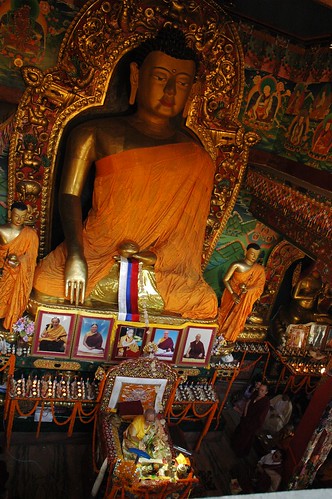
Under a giant statue of Lord Buddh, shrine, His Holiness Dagchen Rinpoche leads prayers, monks and sangha members, photos of Sakya lamas, with a central portrait of His Holiness the Great 14th Dalai Lama, Tharlam Monastery, Boudha, Kathmandu, Nepal, a photo by Wonderlane on Flickr.
"Ask advice from someone with experience
Before you make a decision.
Even if they don’t give you any advice
You can still see how it turned out for them.
If you think about advice carefully
You won’t get tossed around and thrown down quite as much.
If you don’t scrutinize advice
You may get thrown a long way.
If advice has no conclusion
It might have been made up.
If advice goes on for a long time
You might have to be careful.
If advice addresses too many concerns
You might have to rein it in.
Get the advice into your head.
Look into the reasoning behind the advice privately.
If it gets you what you need, call it a hit.
If you have to struggle to apply the advice
Do you think you will be able to use it?
I could tell you hundreds or thousands of words of advice,
But there really are only two kinds:
What you get as a corollary of merit
And what you get from checking things out maturely.
In summary,
Karma is the first priority.
Old people with dark complexions will tell you:
Family prosperity does not come from prudently saving money,
Unless you make merit your first priority.
Be serious about giving up dark karma;
Involve yourself in the karma of light."
WORDS OF THE SAKYA MASTERS
Translated from the Tibetan by Chris Wilkinson
Hand and Arm of the Buddha, Mudra Calling the Earth to Witness, Tharlam Monastery, Boudha, Kathmandu, Nepal
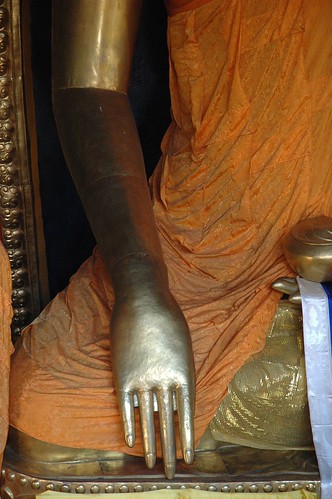
Hand and Arm of the Buddha, Mudra Calling the Earth to Witness, Tharlam Monastery, Boudha, Kathmandu, Nepal, a photo by Wonderlane on Flickr.
Praise for Birwapa
I reverently bow my head to the feet of my holy guru.
Glorious Birwapa,
I reverently throw this blossom of words
Taken from the waters of faith
At your lotus feet.
By what virtue is here
Please bestow your Siddhis on sentient beings.
You learned everything that can be known.
Then you became a master
Who authored studies in every field.
I bow to you.
You decorate the entire world.
You are called “The Great Charioteer.”
Your true name is “Srimat Dharmapala.”
Fearless One, I bow to you.
After you became a master of all that can be known
You lit a street lamp of awareness.
Even when you had a thousand points of contention with others
You did not get upset.
I bow to you.
By daylight you organized the Sangha.
You employed them at teaching, debate, and composition.
By night you immersed yourself in gaining liberation.
Unrivaled One, I bow to you.
Your good works are inconceivable.
Who could count them?
It would take a hundred eons to go over a mere part of them.
There is no being finished with you.
I bow to you.
The Lord of the World would be oppressed
If he had to do just a part of what you have done.
Instead, he styles the delivery his instructions to praise you.
I bow to you.
Those arrogant teachers of heresies, the Vaishnavas,
Fainted when they heard you speak.
You got them to accept the Three Jewels.
I bow to you.
Your early name was “Dharmapala.”
At your blessing ceremony you received the name “Birwapa.”
When we hear about you all the darkness goes away.
I bow to you.
We practice in your footsteps,
Dwell on your physical appearance,
And remember the meaning of your name,
So a hundred ten millions of demons
Will never get the chance to see or find us.
That’s why there is no shelter better than you.
I know it for sure.
I researched the teachings and transmissions of others
Even though I was given advice that said
“Don’t go there,”
Wondering if there was anyone that resembles you.
When I did,
I was scorched in a fire of pain.
Only the mighty Jewels could pacify this pain.
If there is anyone holier than you
Tell me about it.
You are not different from the Three Jewels.
There are no Jewels other than you.
There are no gurus other than you.
There is no refuge other than you.
Your special love for living beings
Liberates us from the bad things we’ve done.
You bestow holy blessings
On those who hear your name.
I think of you all the time,
Whether I am walking, standing, lying down, or sitting.
You will not let go of me
Until I am your equal.
My guru has blessed me.
Why wouldn’t you bless me the same way?
There is obvious evidence that you do.
I won’t change my mind about it.
You are compassionate.
Please give your blessings without fail
To those who praise you every day
With this prayer.
The Pandita Kunga Gyaltsen Pal Zangpo sang out this Prayer to the Mighty Yogi Birwapa while in the library of Pal Sakya.
WORDS OF THE SAKYA MASTERS
Translated from the Tibetan by Chris Wilkinson
Tuesday, April 09, 2013
Ornate multi-headed, multi-armed Chenrayzee statue, holding a mala, flower, vase of nectar, bow and arrow, and bell with dharma wheel, stupa construction, Kopan Monastery and Nunnery, Kapan Village, Kathmandu, Nepal Kathmandu, Nepal
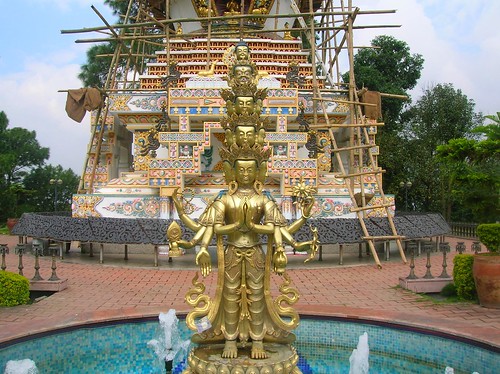
Ornate multi-headed, multi-armed Chenrayzee statue, holding a mala, flower, vase of nectar, bow and arrow, and bell with dharma wheel, stupa construction, Kopan Monastery and Nunnery, Kapan Village, Kathmandu, Nepal Kathmandu, Nepal, a photo by Wonderlane on Flickr.
Praise of Jetsun Rinpoche Dragpa Gyaltsen
I reverently bow to my guru and to Manjugosha.
Lord of the Two Footed,
You cut through the vines that turn life in this world into a net.
You are an ocean of goodness.
You tell people that the path of peace is the best.
You found the level of holiness that you were trying to find.
You are a king.
Guru of the Living,
Your limitless intellect is a word-treasure.
I bow to your feet.
Right now I want write down your life story:
My way of planting flowers for you.
Lord of Dharma,
Palden Chokyi Gyaltsen,
You are expert at everything you study.
What can I say?
Your amazing knowledge of writing and the meanings of words
Is an encouragement to everyone else.
You never run out of well made arrows,
Yet you don’t involve yourself in worldly projects.
You are an inimitable personality.
I bow to you.
You said: “There are numerous reasons words mean what they do.”
Ten million scholars could not contradict this,
As long as they stuck to the truth.
Inside yourself when you sleep
You systematically go over books on the Dharma.
It’s a sure thing that you see all dharmas as they really are.
I bow to you.
You have said that
After we say the name of a Wisdom Being out loud
We will purify ourselves for seven more lifetimes
Then attain realization all by ourselves in that very life.
Critics like me have no doubts about this.
There is a lot of evidence that it’s true.
I praise you and bow to you.
You pay attention to what people think,
And are expert at grammar.
When you find things that contradict the Dharma
You say: “There’s a problem with what you’re saying.”
I am inspired to research the things you consider to be pure.
Scholars everywhere commend you.
I bow to you.
When I come across Dharmas that are difficult to fathom
You say: “You can’t get past this one.”
If we want to find other people who speak with such honesty
We have to look in the Sutras.
You talk exactly like them.
You say exactly what the Sage said.
You have the strength to pay attention
To what is going on during this eon.
I bow to you.
You write for people who are into writings.
You calculate for people who are into calculation.
You give sustenance to people who are trying to stay alive.
You even teach the Dharma to people who long for the Dharma.
You compassionately consider just what will help people,
Then you teach them things that actually help them.
I have not seen any teacher as good as you.
Omniscient One, I bow to you.
Your eloquence is a lion’s roar.
You stand out from the gods, siddhas, and Keepers of Awareness.
You live among the lords of the belly crawlers.
The Victorious Ones commend you for getting along with them.
What do I tell them about the story of your life?
You are concerned about everything.
You even look for virtue in shriveled up things.
I bow to you.
You encourage people to be strong in their commitments.
You listen to them,
See what they need,
And support them.
You are a jewel of virtue and goodness:
The only treasure worth seeking.
But they prop up people who lack any goodness
And tell everyone how great they are.
You actually do have goodness.
The wise tell everyone about you.
I bow to you.
You have learned a great deal and your mind is clear.
You are intelligent.
It’s easy for you to meet with famous people,
People with serious commitments, and the mighty.
You grow faith flowers.
You see things as they are.
Your heart is pure.
You have a good mind.
I bow to you.
You are compassionate to the living.
You don’t toss us out.
Your love is large.
I come to you for shelter.
Your kindness will pass away
No matter what I do.
I am not happy about that.
You said “You are so kind” to me.
When I think about the story of your life
I cry a lot.
There is nothing to dispute.
Nothing is wrong.
It works out faultlessly.
You are pure and your name is good.
Who would come to you just to take your stuff?
I do not praise you because we are relatives.
I praise you because you are kind.
Why shouldn’t I?
If writing this Praise means that I have taken sides,
Let the issues that drag us down be let loose
Like smoke looses fire.
Let’s take a good look at what is good inside us
And praise Dragpa Gyaltsen.
It’s the only way to praise him.
I have drawn on my faith
To put down these words in a hurry.
Please accept them in equanimity.
I beg the patience of scholars who find happiness in words
And of anyone who cares about words.
I reverently distribute this flower
Of Mahatma Lodro Gyaltsen’s goodness.
If there is any merit in it
May I gain the status of Guru for the Three Worlds.
This Praise is being distributed by Palden Kunga Gyaltsen with the hope that clear minded people will appreciate it and be blessed to see that there is wisdom in being compassionate. I touched my head to the toes, the anthers of the lotus feet, of the noble Manjushri and was made a master of the mandala of all that can be known. This praise is in recognition of Dragpa Gyaltsen, an Upasaka of pure lineage. It was written by Kunga Gyaltsen and finished hastily.
WORDS OF THE SAKYA MASTERS
Translation from the Tibetan by Chris Wilkinson
Monday, April 08, 2013
Dilgo Khyentse Rinpoche and Dagchen Sakya leading prayers from their thrones, murals, silks, nectar vase with peacock feathers, khatas
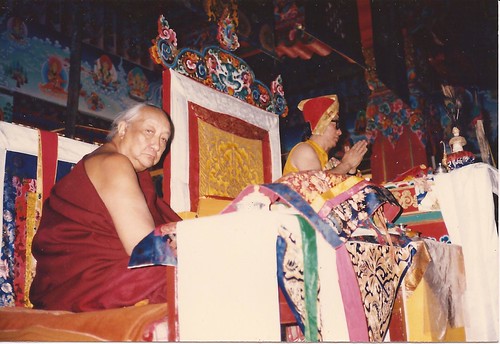
Dilgo Khyentse Rinpoche and Dagchen Sakya leading prayers from their thrones, murals, silks, nectar vase with peacock feathers, khatas, a photo by Wonderlane on Flickr.
I believe this photo was taken by Steve D.
"An Outline of the Duties Associated with the Glorious Lord of the Cemetery
When a contagious disease is about the land
Put together a powder to be scattered about the area.
Make offerings and present them to your guru, the Precious Ones,
And the Lord of the Cemetery.
Make a prayer: “Avert this contagious disease!” [314]
Bury the ashes from the cemetery near the town
Consider that innumerable people
Will be walking around the Yab/Yum embodiment of the Lord of the Cemetery.
This will avert the contagious disease.
When cattle are getting lung infections
And sheep are getting blisters
Make a mixture of ashes from a cemetery with white mustard and black mustard.
Scatter this around the pens for the cattle.
This will stop the disease from reaching humans and cattle.
Namo Gurawe!
First, the retreat (bsnyen pa):
Draw out two precious jewels on top of a round mandala a full cubit in size.
Pile some barley on top of it.
Put a tripod over that.
Put the Base Torma on that.
Put the Supplemental Torma on that.
Put the Constant Torma in front of it.
Fervently pray to the Yab/Yum.
It is required that you maintain an unchanging Samadhi
That you yourself are the Yidam.
Consider yourself to be surrounded at all times
By innumerable Yab/Yums,
And that the things that obstruct you are being removed.
Pray.
You must maintain Samadhi.
A method for protecting yourself from any sort of war or pestilence
Is to make offerings of sacrificial torma according to the Upadesha.
When enemies are present, do it at dawn.
In the case of contagious disease
There is no schedule.
These are performed just as mentioned above.
Remember that The One Who Poses for the Dance
Excoriates the vicious from within.
Put out Constant Torma and trays of beer:
Seven of each.
Put two conches on top of the Base Torma.
Generate the Yab and the Yum on top of the two conches,
Standing on meat and blood.
Think of them as a mountain and an ocean.
The [deities] melt into the [conches].
Do seven mantras for the Constant Tormas,
And offer them up, adding khāhi khāhi to the seven.
Do not let go of the torma that you hold.
Keep it as a hostage.
Furthermore, six times a day
You must do seven left-circumambulations,
One after the other.
Use seven chang bu for each.
The upper limit on this is seven times.
Do not let women inside the hermitage.
These are The Short Words for Success (sgrub pa).
Namo Gurawe!"
WORDS OF THE SAKYA MASTERS
Translated from the Tibetan by Chris Wilkinson
Dagchen Rinpoche's Seattle retinue (Liz, Eugenia, Danny, Adrienne, Kathy, Maliki, Blaine) at an audience with Dilgo Khyentse Rinpoche. HH Dilgo Khyentse was giving Dagchen Sakya a Long Life Wang, Naropa, Boulder, Colorado, USA, 1976
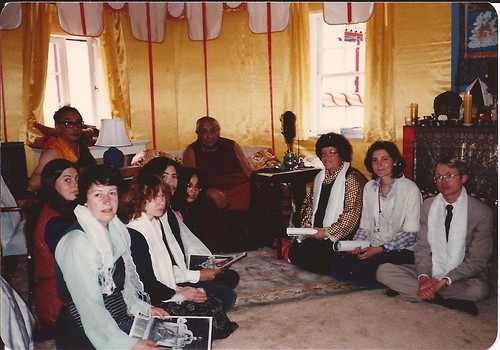
Dagchen Rinpoche's Seattle retinue (Liz, Eugenia, Danny, Adrienne, Kathy, Maliki, Blaine) at an audience with Dilgo Khyentse Rinpoche. HH Dilgo Khyentse was giving Dagchen Sakya a Long Life Wang, Naropa, Boulder, Colorado, USA, 1976, a photo by Wonderlane on Flickr.
HH Dilgo Khyentse Rinpoche's blessing for HH Dagchen Rinpoche was effective.
I believe this photo was taken by Steve D.
"Om Svasti Siddham.
I bow to the great men that perceive that dharmas have no true nature
But lovingly work hard to help others.
I will write down an account of the unerring transmission (brgyud).
Vajrasattva is the pure personification of the heart of the great Vajradhara. He manifested a Nirmana Mandala in the city called “Patikīrti,” and empowered the king Rab gsal zla ba. He gave him permissions for all the Tantric scriptures. His student was prince sGra gcan ‘dzin bzang po. There were also Ye shes rdo rje, Prajñasiddhi, and Rab ‘byor bskyang, making four. The four of them has a student who was a master from Bamgala to the east named Kun dga’ snying po. The most excellent attribute of his personage was that from among those who kept vows he was the finest Vajradhara Bhikṣu. He was a Master Bhikṣu. For his livelihood he shared merit. He had given up hoarding and storing things. He didn’t hold on to stuff. He didn’t have anything but these two: Glorious Vajrasattva and his transmission (brgyud). He preserved their instructions and blessings and did not give up on them. He was expert in the five fields of knowledge and was a consummate Pandita. People said “Kunga Nyingpo has the finest intellect.” He was also special in that he had made it to the other side of the ocean of Secret Mantras.
From amongst those who had done a great deal of study he was the best. So this Master, being of the type I mention, was sharing merit in the city of Patikīrti while he lived there. This was when a Master named Prajñapalita was active in the western part of eastern India. He came to the city and asked around: “They say that king Rab gsal zla ba had four students: Soudipāla. Ye shes rdo rje, Prajñasiddhi, and sGra gcan ‘dzin bzang po. Where do they live?
They said: “All of them have passed away and are no more.”
So he said: “O Na, who is wise among their students?”
“In yonder mountain forest lives the so-called Kunga Nyingpo. He shares merit.”
So he went to look for him. He found the master eating cold rice porridge for dinner on a flat rock. He asked him to teach. The master was an old man, so he bowed to him. They had a conversation about Dharma that made him feel respect, so he begged him for the Dharma.
To do this he performed the ceremony of the Vajradhatu mandala and gave him permissions. Afterwards, Prajñapalita took them to the capitol at Magadha and expounded on them. The Paṇḍitas said: “Who is the holder of this variety of Dharma?”
He answered: “A master named Anandagarbha who presently lives in Baṃgala and shares merit there.” This went from the ear hole of one Paṇḍita to the ear hole of another in a transmission (brgyud) that even the king heard. The king believed it. He said: “This holy man is in hardship while he works at sharing merit. I will make him a recipient of patronage.” He summoned his chariot. He was imparted with the status of Great Elder of the Dharma by the king and all those great Paṇḍitas. Then in an effort to keep the king’s gift pure, he orally delivered one hundred and eight commentaries on the Tantras. While in the homes of the Paṇḍitas who had attained to the levels he made commentaries that include the De nyid snang ba, which is why the following words are found in it:
The crown jewel of Ātsaryana
Brings joy to the three worlds.
He authored this very commentary on the Tantra
In the glorious library of a consortium of Bodhisattvas,
While speaking on its virtues.
In later times the one hundred and eight Tantras could not be found, so they say he wrote commentaries on the dPal mchog and other Tantras two by two. In this manner he exerted himself in practice and attained siddhis. He is said in eastern India to have seen the face of Vajradhara. Others describe him in conformity with the accounts that come from Kha che.
Jowo Abhaya said: “Moreover, Kun snying is a siddha. There are source works (khungs) in the bsTan bcos for numerous Tantras that no one but he has heard.”
So Kunga Nyingpo was a Master endowed with eight magnificent virtues, as I have described. He composed Tantras for yoga that include mandala rituals and commentary that were spread throughout India and Kha che, but during who’s lifetime were they translated in the land of Tibet?
Well, speaking in general, the religious order (chos khrims) is based on the royal order (rgyal khrims). These are the chronicles:
For twenty one generations after lord gNya’ khri btsan po the holy Dharma was not evident. It was during the lifetime of Lha tho tho ri sNyan btsan of the twenty second generation that the head (dbu) of the holy Dharma was found. Then after five more generations, during the reign of the potentate (mnga’ bdag) Srong btsan sgam po the customs of the holy Dharma were enforced. Laws were established that were built on the Dharma of Ten Virtues. Libraries (gtsug lag khang) were founded. A few of the Holy Dharmas were translated. Dharma Centers (chos grva) for study were barely established, but there was no way to take vows from a revered one (btsun pa). There were no empowerments performed for Mantrins (sngags pa).
Then, after five more generations, there was the potentate Khri srong lde’u btsan. He spread and multiplies the holy Dharma. People became monks (rab to ‘byung) in a land where the rule was correct. Empowerments were performed in a land where mantras had subdued the demons. The Dharma spread and was multiplied. During this period a large amount of Tantric literature, including the De nyid ‘dus pa, were translated, but the Dharma of Kunga Nyingpo was not yet translated.
The son of this king was Khri sde srong btsan and his son was Ral pa can. During their lifetimes a large number of Dharmas that had not previously been translated were translated, and those that had been translated were edited to comply with the new glossary (skad gsar). But even then [Kunga Nyingpo’s Dharma] was not translated.
During the five generations that followed the Dharma Centers declined and no one followed up on the traditions of study, teaching, and practice. This was when there were two sons born to the potentate bKra shis mgon. They were renowned as a pair: ‘Khor and Srung mched. The elder brother had a look at his grandfather’s field notes (thang yig) and saw that he had undergone many hardships for the Dharma. He paid his debt to his father’s lineage. He protected the commoners of Tibet. He had a personal intention to travel on the road to freedom. He became a monk in the presence of a holder of the transmission (rten) and was given the name Ye shes ‘od. He was also called Lama Changchubsempa.
It is from the countenance of Pho brang zhi ba ‘od that we are told:
By the compassionate power of ancient prayers
There is manifest a Bodhisattva of divine decent (lha rig)
Born upon the earth in the body of a great king.
He rejected the household life
In an effort to protect living beings.
This is the Lama Yeshe ‘od.
He has arrived to take control of upper Ngari.
He came so that he could truly protect the Tibetan Public. He was also prophesied in the ‘Jam dpal gyi rgyud:
In a kingdom in the snowy mountains,
In a lineage called the lineage of kings
One called Yeshe ‘od will appear.
That is the prophecy.
This Bodhisattva brought together the offspring from the families of petty lords (rJe’u) and measured the length of their shadows and the distance of their spear. He graded them by their acumen in retaining information and their skills in analyzing what things mean. He kicked out the ones whose intellect was diminutive. The seven boys with the best of the best intellects were given scholarships (rin gyis blus). Many rituals were performed to sharpen their intellects. They had seven servants. There were also seven older servants who came along to take care of them. All together there were twenty one. They were loaned gold for these three groups from the king. The panditas managed the resources personally, so they gave most of it to them and sent them to Kha che.
“They say the Tantras called De nyid ‘dus pa and gSang ba ‘dus pa are as well known as the sun and the moon, so find them. They say there is a commentary on the De nyid ‘dus pa by Kun dGa’ sNying po, so find it. There say there is a learned pandita named Dharmapāla, so find him. If he invites you over don’t look at the gold. If there are any panditas learned in the correct pronunciation of names (mtshan yang dag par brjod pa), invite them. There is a Brahmin named Rin chen rDo rje. If he invites you over, don’t look at his property.” Thus were they given the names of many Dharmas and the names of many Panditas.
This is what the divine Zhi ba ‘od said:
All the traditions of Secret Mantra practice had declined.
The mandala rituals for burnt offerings (sbyin sreg) had been lost.
The mandala ritual called Padma stong ldan
And likewise the Burnt Offerings of the Shag ti shug ti.
Moreover,
The hidden meanings of the Secret Mantras had been lost.
They had been adulterated by the sByor sgrol,
The Tshogs, and similar practices.
We wanted to find someone concerned about what things mean.
This is why we sent Lotsā Rin chen bzang po to Kha che
To concern himself with the Words (bka’).
They did this. All of them went to Kha che and studied the holy Dharma. They became experts. They returned to Tibet. People said: “Both the great Lotsāwa Lhuzor Rinchen bzang po and the Jowo who is a small Lotsāwa Legs pa’i shes rab have arrived!” They told them that the other eighteen, along with the one who served these two, nineteen in all, had died. The great Jowo had found the gSang ba ‘dus pa in Kha che, and had joined the ‘jigs rten snang byed. For the deity he adored, he had tossed his flower to Manjushri. Both Lotsāwas, the great and the small, studied this cycle of the Dharma till they were expert. They found an Indian manuscript of the De nyid ‘dus pa, which is a Yoga Tantra. They found the Commentary on it. The found the rDo rje ‘byung ba. They did not find the sTod commentary, or anything like it. When they joined the Vajradhatu their flowers fell on Manjushri once again. Overall, the great Jowo entered the mandala thirty five times, and all of his flowers landed on Manjushri.
So it was that the Jowo translated a large number of Dharmas pertaining to the two ‘Dus pa that were from Kha che. He elucidated the traditions of the secret mantra. Zhi ba ‘od said:
He invited the one called Shraddhakara.
They translated the sGron gsal,
The sPyod pa bsdus pa’i sgron ma, and similar works.
He expounded on them,
Removing erroneous mantras from the scriptures.
He got into the traditions of the great wise men of old.
He faultlessly applied these scriptural traditions to the rituals
For burnt offerings, meditation practices, and so many specifics
So that everyone could use them.
He gave his collection of empowerments to the fortunate,
One by one.
His writings on mantra have been distributed right up to this day.
We count this to be the Lotsā’s kindness.
He was the best of men.
That is the chronicle of the translation of the mandala ritual from the Kha che manuscript."
WORDS OF THE SAKYA MASTERS
Translated from the Tibetan by Chris Wilkinson
